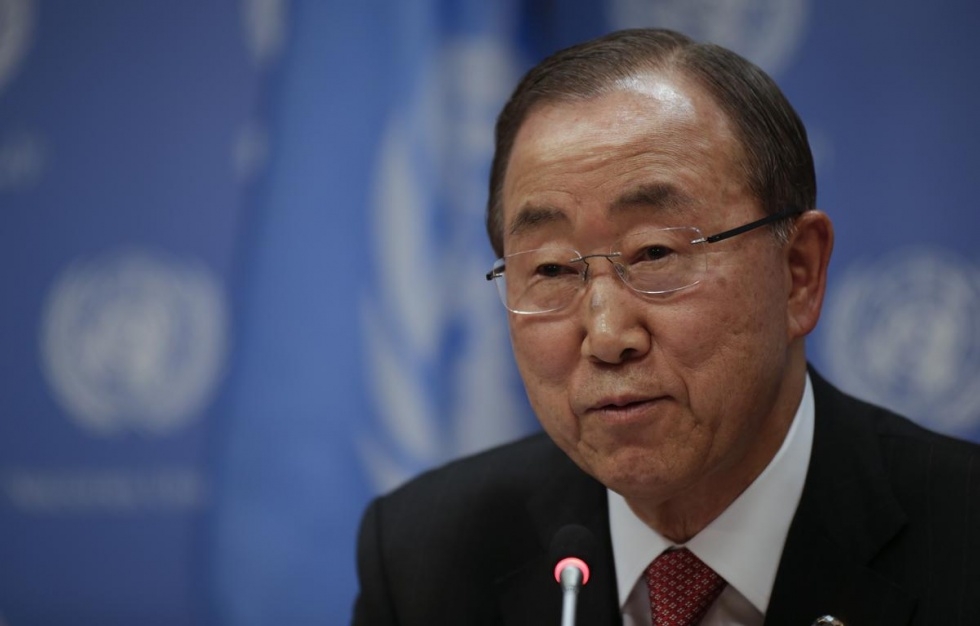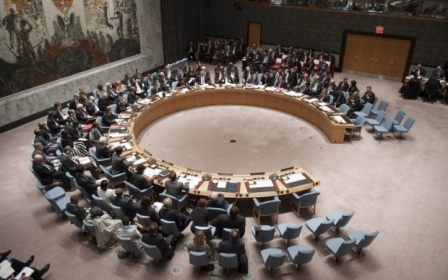UN chief urges efforts for direct Israel-Palestine talks

The UN Secretary-General said Wednesday that he welcomes any Security Council action to advance the Israeli-Palestinian peace process but it would be up to the two parties to resolve pending issues.
"Following this year’s hostilities in Gaza, the leaders of Israel and Palestine have a responsibility to step back from the brink, ease the current tensions and salvage a two-state solution that is looking ever more remote," Ban Ki-moon told UN reporters in his traditional year-end address.
When asked about two planned Security Council proposals that seeks to bring an end to the Israeli occupation of Palestinian lands, he said it was more important for both sides to sit at the negotiation table to address the conflict.
On Wednesday evening, the Palestinian LIberation Organisation, with the backing of Jordan, submitted a resolution to the Security Council calling for a peace agreement with Israel and the full withdrawal of Israeli troops by 2017.
A French proposal calling for a resumption of peace talks between Israelis and Palestinians within two years has been making rounds. AFP news agency reported ahead of the meeting that the Palestinians had agreed to merge their proposal with the French, but it appears that the Palestinians went ahead with their own version.
Negotiations on the text may take days or even weeks. Nine votes out of the 15 Security Council members are needed to adopt the resolution.
"I have been urging, and I'm urging again, that [Israel and Palestine] should discuss this matter so they can realise a two-state solution, two-state vision where Israeli and Palestinian people can live side by side in peace and security," Ban said, referring to the UN-proposed solution that calls for two states for two peoples with an independent state of Palestine alongside the state of Israel.
Israel occupied East Jerusalem and the West Bank during the 1967 Six-Day War. It later annexed the holy city in 1980, claiming it as the capital of the self-proclaimed Jewish state – a move never recognized by the international community.
Palestinians want a state of their own in the Gaza Strip and the West Bank, with East Jerusalem, currently occupied by Israel, as its capital.
Stay informed with MEE's newsletters
Sign up to get the latest alerts, insights and analysis, starting with Turkey Unpacked
Middle East Eye delivers independent and unrivalled coverage and analysis of the Middle East, North Africa and beyond. To learn more about republishing this content and the associated fees, please fill out this form. More about MEE can be found here.




